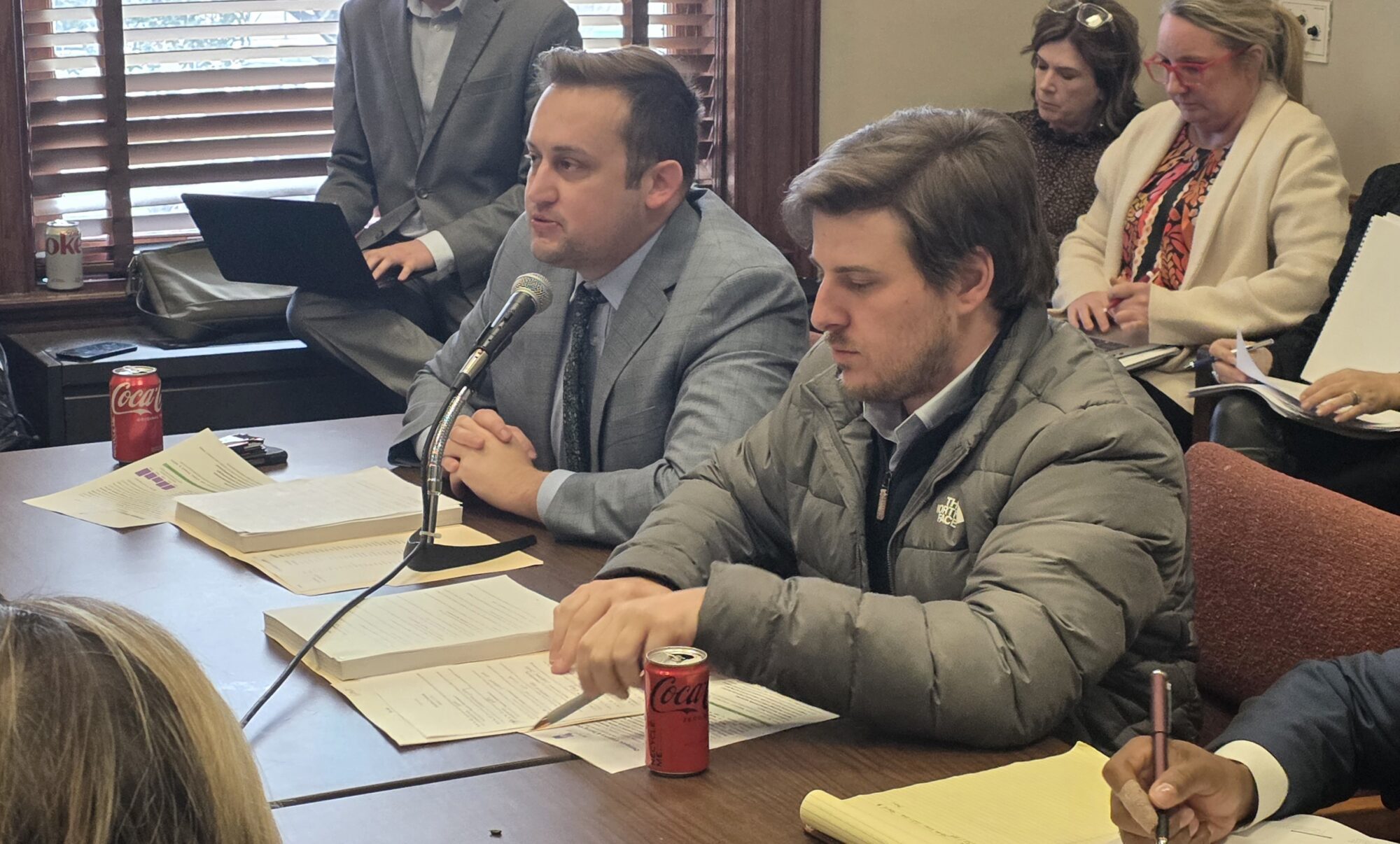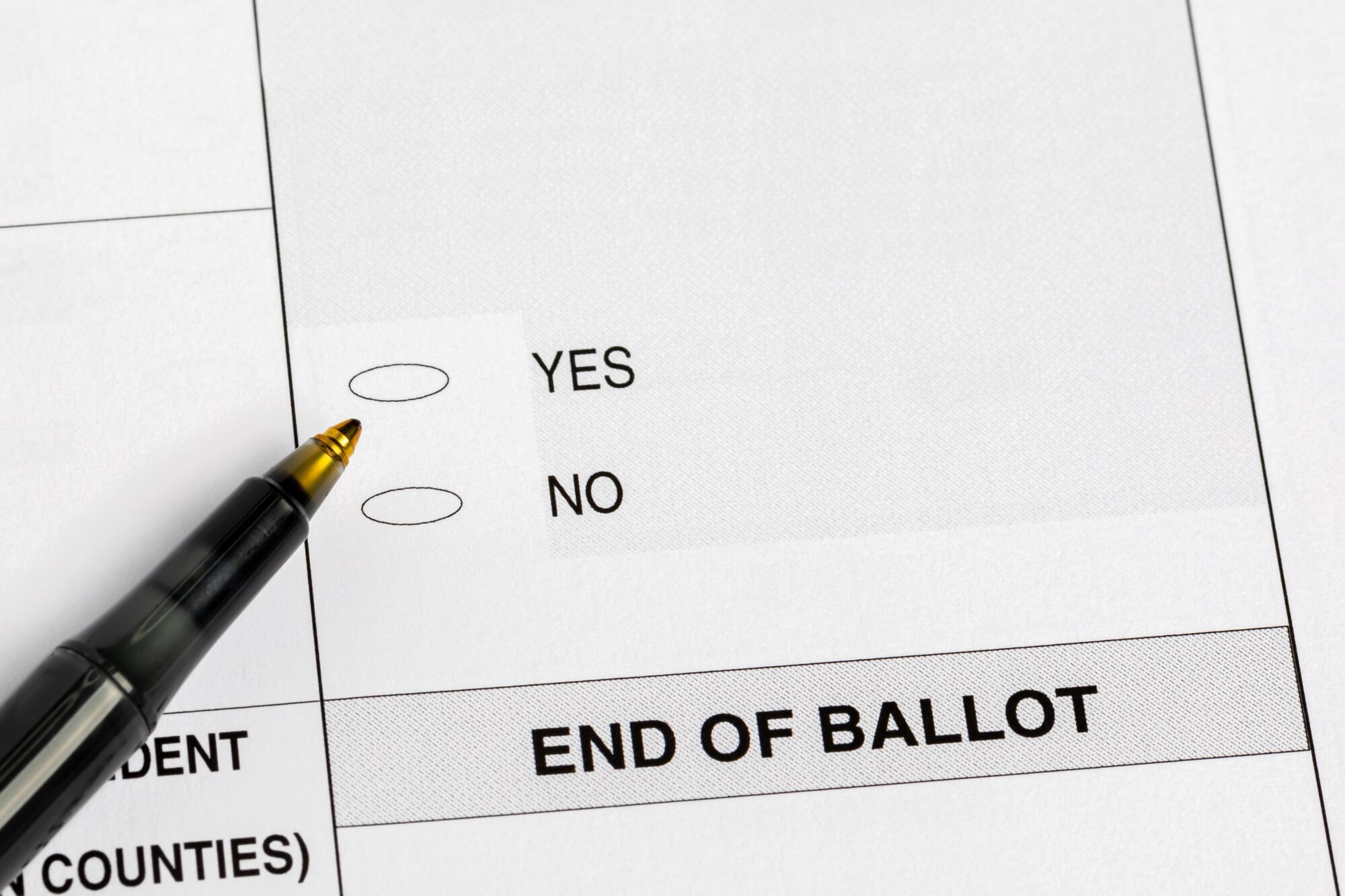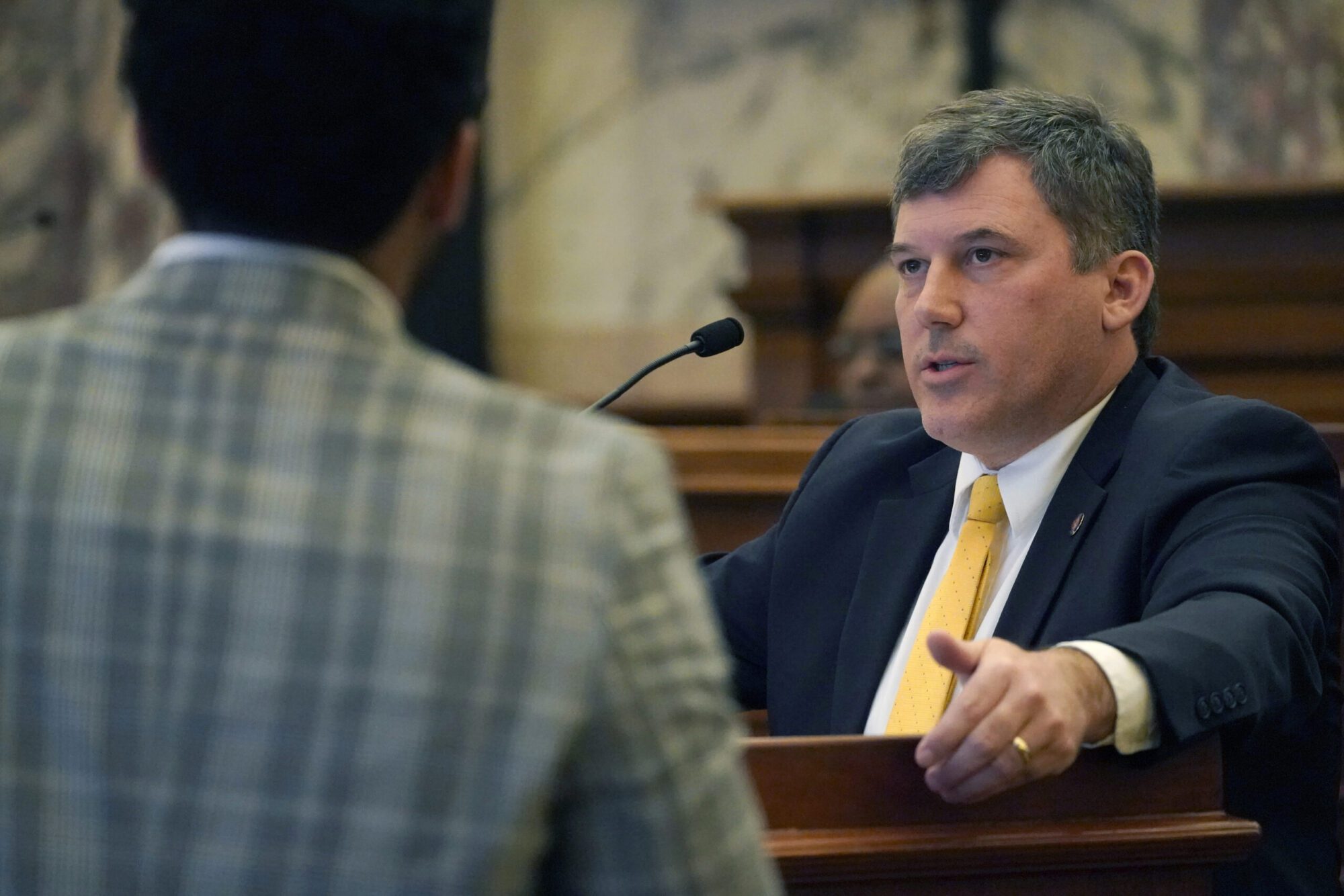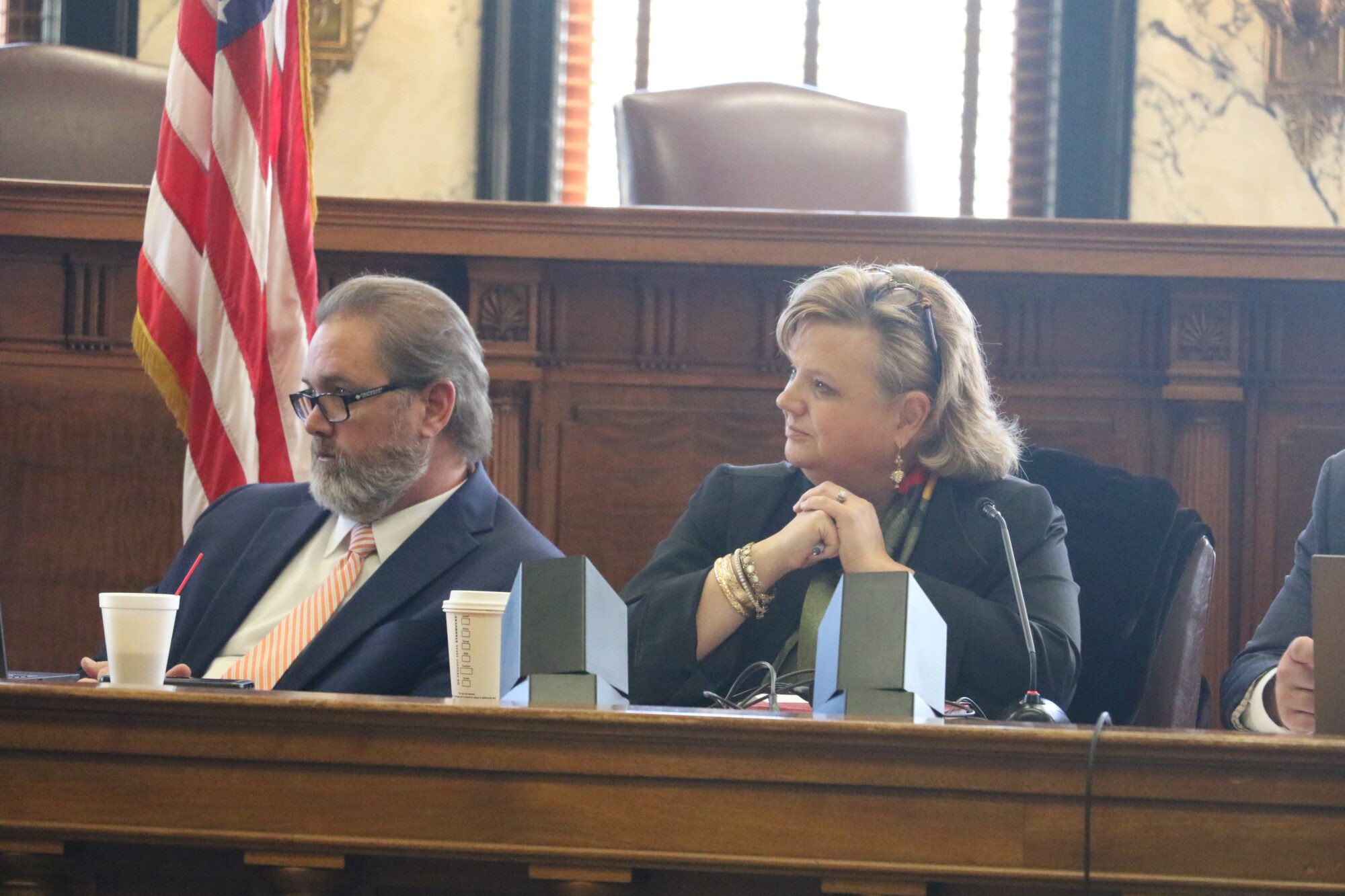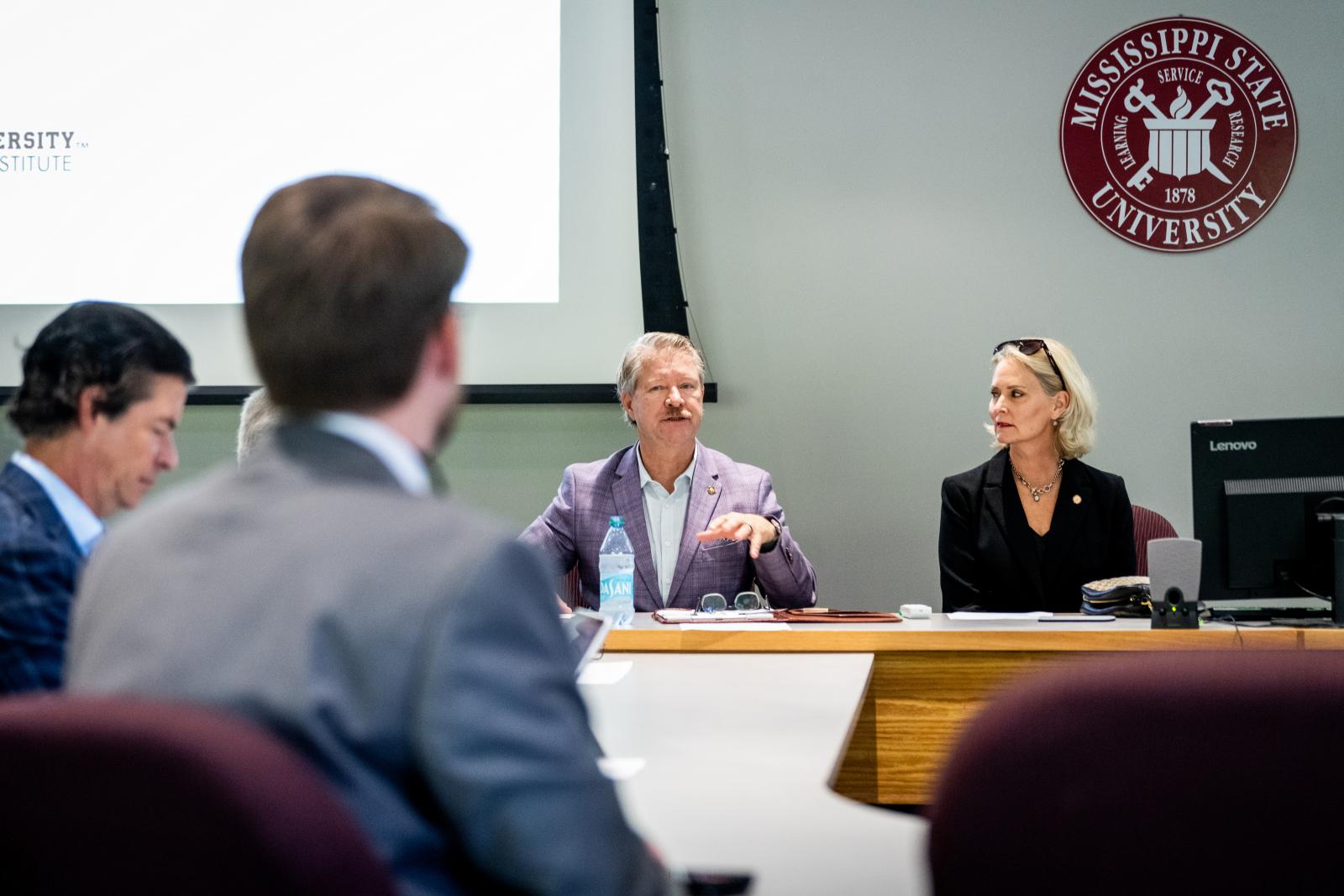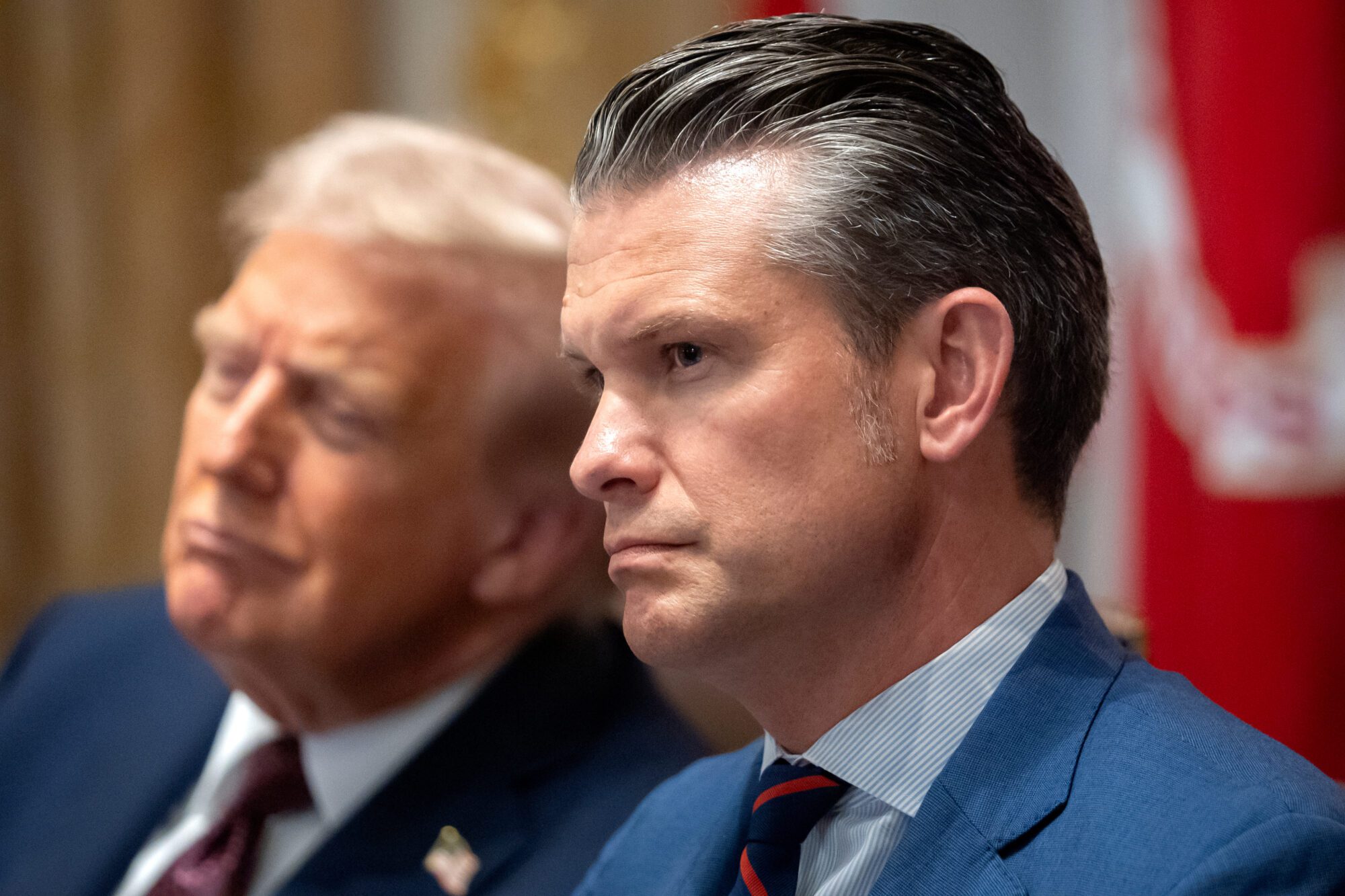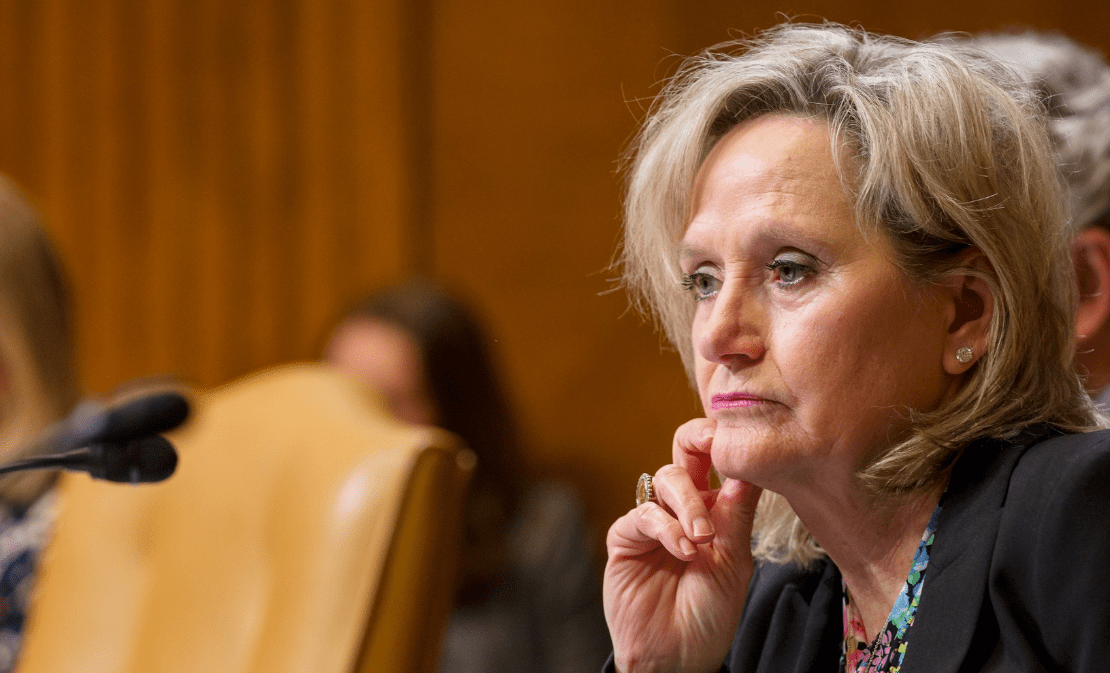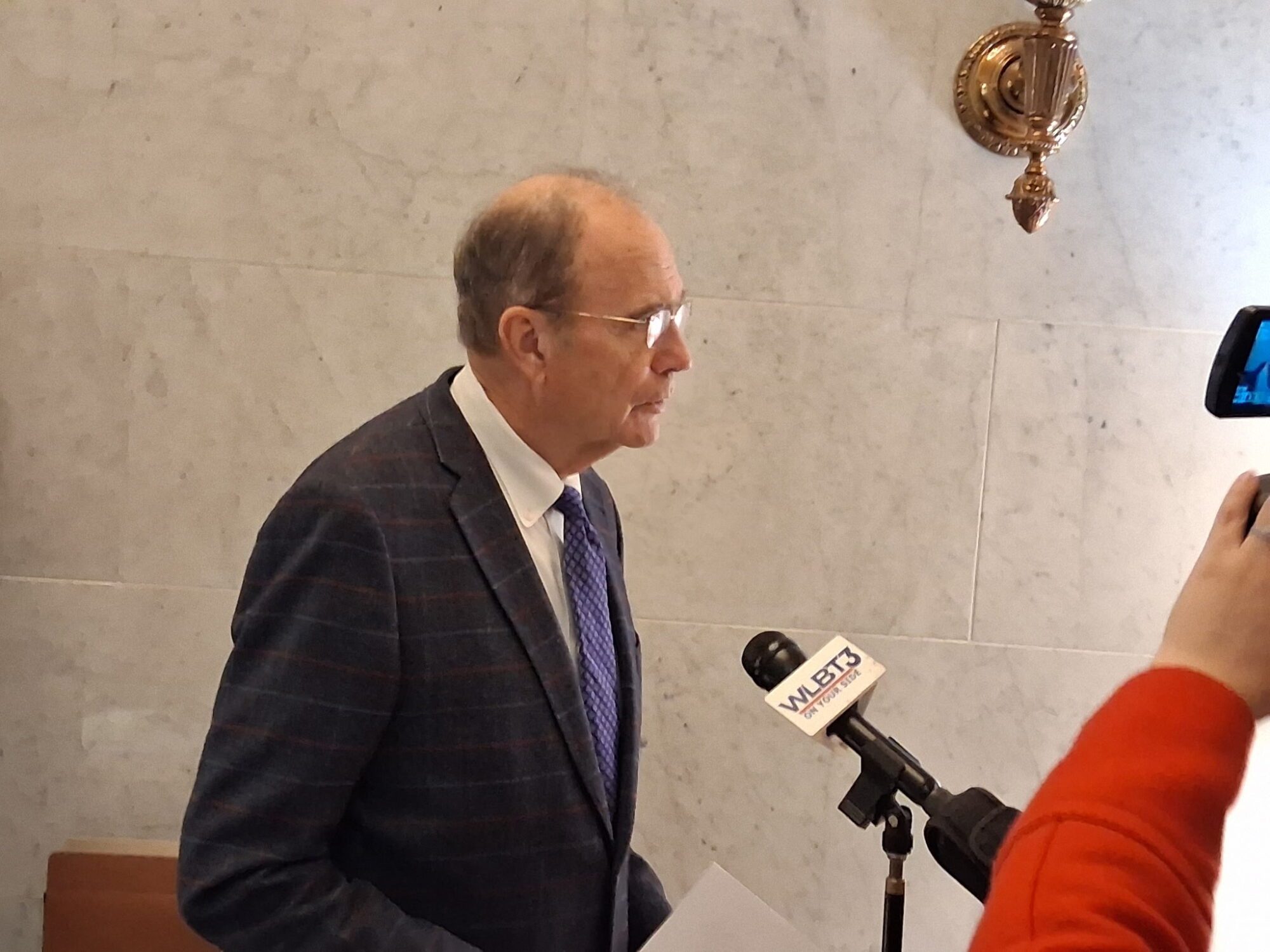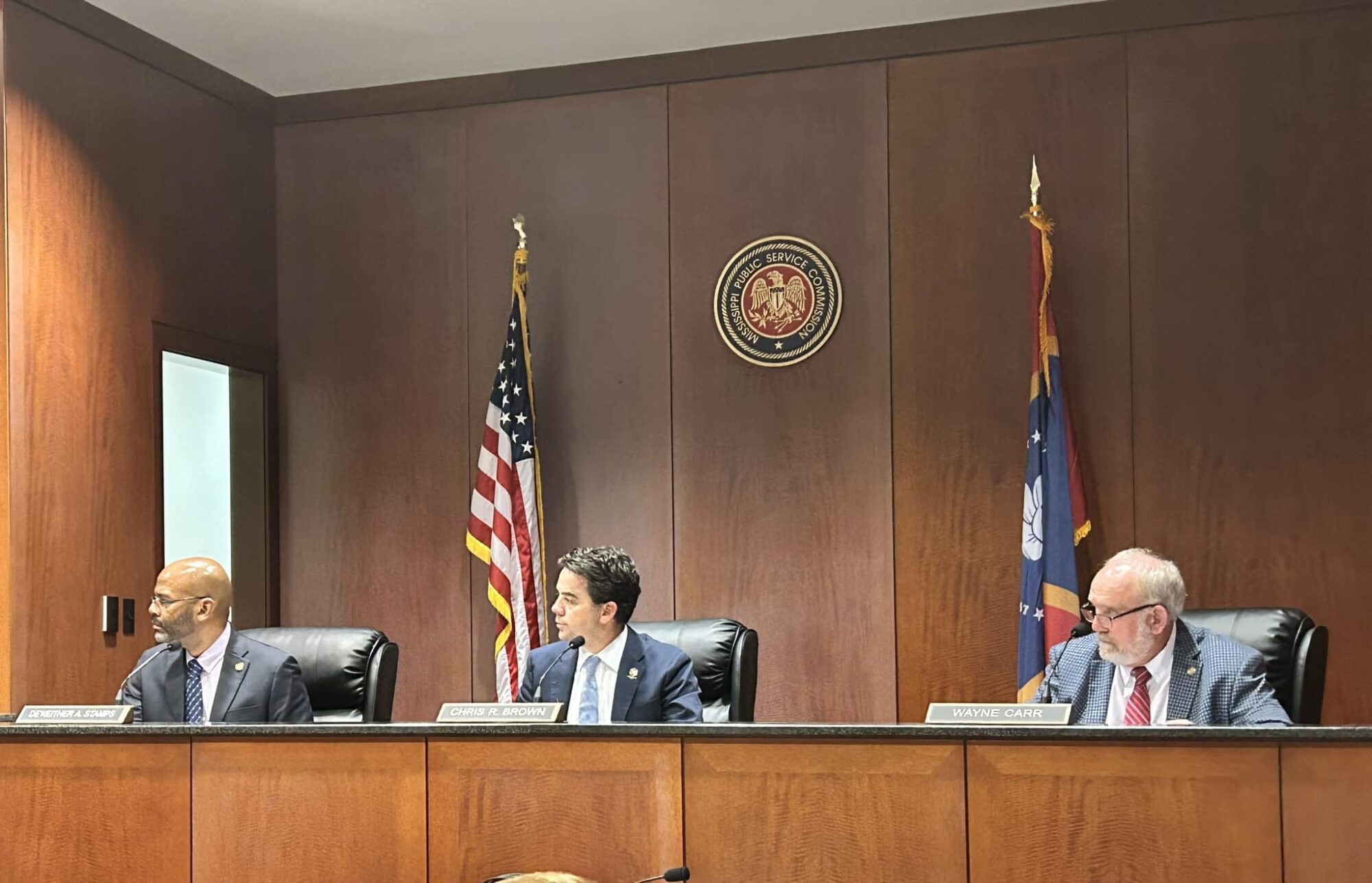
Mississippi Public Service Commission, February 2025. (Photo from MS PSC on Facebook)
- Officials with Entergy Mississippi say the economic growth is helping stabilize rates and provide revenue for grid upgrades.
Kelley Williams with Bigger Pie Forum told attendees at the Mississippi Public Service Commission’s Power Grid Summit Thursday that higher electricity rates are coming to the Magnolia State unless its residents “wake up” and demand answers from officials about deals with data center operators.
Williams said the question is not being asked as to who is going to pay for the power usage of Amazon, AVAIO and Compass when they flip the switch to operate in Mississippi. The answer is unknown, he said, because the agreements are not being made public.
“We don’t know the answer to that question because it’s a secret,” Williams told the 50 or so attendees at the PSC Summit.
Williams said what is known is that small businesses and residential electricity customers will not benefit from Mississippi attracting massive power using data centers. Instead, he said smaller users will subsidize the centers.
At issue, Williams said, is the legislation passed during a special session which stripped the PSC of oversight powers and greenlighted unlimited spending for Entergy while subsidizing Amazon’s Madison County data center projects.
“This is a secret deal for one of the largest companies in the world and enriches shareholders of one of the largest electric utilities in the country,” Williams said.
Mississippians have seen a similar deal go bad, Williams reminded the PSC, citing the failed Kemper County project by Southern Company and Mississippi Power nearly a decade ago.
Williams continued his presentation by comparing the deals the state is making to data center operators to a shell game.
“The negotiator got the best deal for Amazon, it must be the best deal they ever got,” Williams said.
To buttress his statements, which had many attending energy executives stoned faced, Williams highlighted what he called the Data Center Effect. He said states that have allowed data centers to operate saw energy costs passed on to their citizens. In Virginia, rates skyrocketed by 29 percent after data centers started operating, Williams said. By 2030, rates are expected to double. In Georgia, rates shot up 27 percent, he added.
Citing the Jack Kemp Foundation, Williams said the hardest hit will be low-income Mississippians, many of whom are already struggling to pay their power bill. Williams said few Mississippians are aware of the issue, because only a handful of news outlets have covered the impact.
Entergy Mississippi countered Williams by telling the PSC that economic growth from the data center developments and other ancillary businesses coming to Mississippi as a result is helping stabilize rates and provide revenue for grid upgrades.
The company said Wednesday that it is allocating an extra $300 million towards power grid updates to reduce the frequency and duration of outages. Company officials said the improvements will not come from rate increases, but instead from large customers, including data centers.
Jeremy Vanderloo, Entergy’s vice president of business operations, told the PSC at the Summit that the company takes to heart reliability and affordability. He noted that supply chain and equipment costs have driven up rates since the COVID pandemic, but the company understood the growth trajectory they saw in rates was unsustainable.
“While I can’t change the supply and demand equation that’s driving up the costs of the equipment we need for our business, I can go out and look for new growth that will help spread those costs over a larger customer base,” Vanderloo said. “And that’s exactly what we did.”
Vanderloo said the revenue growth in its customer base will increase reliability spending by 50 percent which they believe will drive outages down by 50 percent. He noted that the improvements will come “with no additional costs” to its ratepayers.
Entergy officials told PSC Commissioners that additional energy generation would have been necessary even without the economic growth coming to the state by way of data centers and other corporate investments.
Vanderloo spoke on Entergy’s involvement in courting Amazon to the state as a way of capturing new revenue through economic investments in Mississippi to combat increased rates for customers.
“We used some personal relationships that some of our employees had with individuals at Amazon Web Services and we set out just to learn about the data center industry,” he said, asking what it needed when a data center locates in a particular area.
At that time, Vanderloo said Amazon was not looking at anywhere in the southeast, but years later they came to Mississippi because, as he recalled, they said “you’re one of the only utilities who has not told us no.”
“When you think about what is good economic development, good economic development is growth that generates more growth,” Vanderloo said, adding that growth cannot mean pushing costs onto other customers.
Also speaking at the all-day PSC Summit was conservative economist Stephen Moore with the Heritage Foundation. He voiced support for the state exploring more nuclear power.
Moore said nuclear generation is safer than it has been in the past, but he noted that trying to convince the public of that is going to be an issue. He also said renewable energy has too many production issues and discounted them as a viable source of energy.
Southern District PSC Commissioner Wayne Carr (R) said that nuclear power could be in the state’s sites, given the rapid growth of economic development in Mississippi.
“Growth is coming quick – quicker than what we anticipated,” said Carr. “There’re more data centers coming. There’s more infrastructure that needs to be built. There’s more industry coming.”
You can watch the full Power Grid Summit below.
